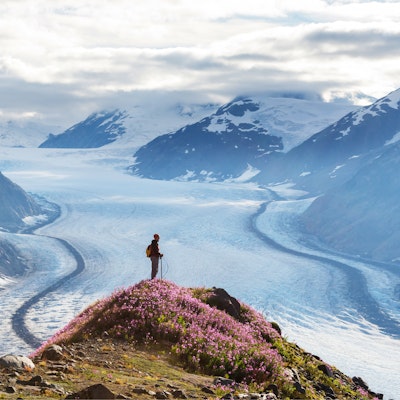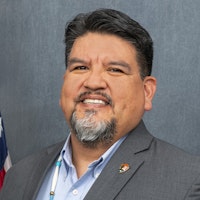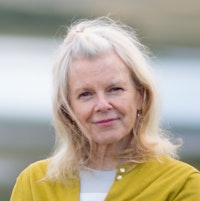
Many tribes don't even have a word for wild land. What they do have a word for is imbalance.
Show Notes
As the world’s nations face the realities of climate change negotiation in Egypt this week at CoP27, the United Nations Climate Change Conference, we take a closer look at what it means to care for wild places. For some indigenous groups, just the concept of “wild” land is foreign, but many of these groups do recognize when land is out of balance. The extreme floods and fires we’ve been seeing around the U.S. and the world are a telltale sign that something is off, and as humans, we need to pay a little more attention to what’s happening on our land. Chuck Sams is the first Native American director of the U.S. National Park Service, and he explains in this talk how his background impacts the way he approaches his job and thinks about managing protected places. Kristine Tompkins spent a lot of time outside and in U.S. national parks growing up, and now runs Tompkins Conservation. The philanthropic organization buys up land in Chile and Argentina to restore and return to the countries as part of their national park systems. NBC Correspondent Gadi Schwartz moderates the conversation and shares some outdoor memories of his upbringing in Albuquerque, New Mexico.
Explore
Related episodes


So much of adult life is about learning the rules and then using those rules to navigate the world. We become certain that we know what we know — that we’re right, and we’re safer and more secure that way. But certainty, argues neuroscientist Beau Lotto, might actually be one of society’s biggest sources of emotional and physical unwellness. Certainty causes us to have les...


Heat waves. Wildfires. Floods. This summer has served up some of the most extreme weather on record, and it’s clear many of us are overwhelmed by climate change news. We usually hear more about problems than solutions, and it’s often difficult to find helpful information about managing our fear and discomfort. Alaina Wood is a scientist and climate communicator, known for...


It used to be that having a “bird brain” was an insult. Now, it’s practically a compliment! Turns out the brain of a bird, which is small enough to fit into a nut, is full of neurons. These animals are capable of complex cognition — they can solve problems, count, understand cause and effect, and even communicate in ways that resemble language. Jennifer Ackerman chronicles...


There's no denying the world is already paying for climate change. The price is stronger hurricanes, bigger wildfires, and unpredictable heat waves. So, how can people living on a changing globe literally pay to mitigate the effects of climate change? One solution is to utilize the social cost of carbon, says economist Michael Greenstone.









